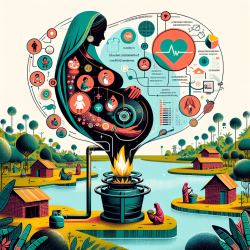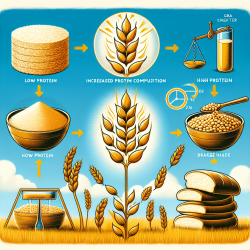Introduction
The recent study titled "Association between maternal employment status and presence of children with major congenital anomalies in Denmark" provides significant insights into the socioeconomic challenges faced by mothers of children with major congenital anomalies (MCMCAs). This research, conducted over two decades, highlights the long-term employment consequences for these mothers, even in a nation with comprehensive childcare systems like Denmark. As practitioners, understanding these outcomes can guide us in supporting families more effectively and advocating for necessary policy changes.
Key Findings
The study reveals that MCMCAs are less likely to participate in the workforce compared to mothers of unaffected children. The employment disparity increases as their children age, with MCMCAs spending more time outside the workforce and having a higher likelihood of receiving disability pensions. Specifically, the adjusted rate ratio (ARR) for MCMCAs being outside the workforce was 1.05 during the first six years, increasing to 1.12 during the 14-18 years after delivery.
Implications for Practitioners
As practitioners, these findings underscore the importance of providing tailored support to MCMCAs. Here are some strategies to consider:
- Advocacy for Policy Change: Advocate for policies that offer extended support to families with children with major congenital anomalies, beyond the initial postpartum period.
- Resource Allocation: Ensure that resources and support systems are available to assist MCMCAs in managing their caregiving responsibilities alongside their professional aspirations.
- Interdisciplinary Collaboration: Work with healthcare providers, social workers, and policymakers to create comprehensive care plans that address both the medical and socioeconomic needs of these families.
Encouraging Further Research
While this study provides valuable insights, further research is needed to explore the nuanced impacts of caregiving on maternal employment across different socioeconomic and cultural contexts. Practitioners are encouraged to engage in or support research that investigates:
- The impact of different types of congenital anomalies on maternal employment.
- Longitudinal studies in countries with varying levels of social support systems.
- Interventions that could mitigate the employment impact on MCMCAs.
Conclusion
The study highlights the persistent challenges faced by MCMCAs in maintaining workforce participation. By understanding these challenges, practitioners can better support these families and advocate for policies that alleviate the economic burdens associated with caregiving. To read the original research paper, please follow this link: Association between maternal employment status and presence of children with major congenital anomalies in Denmark.










